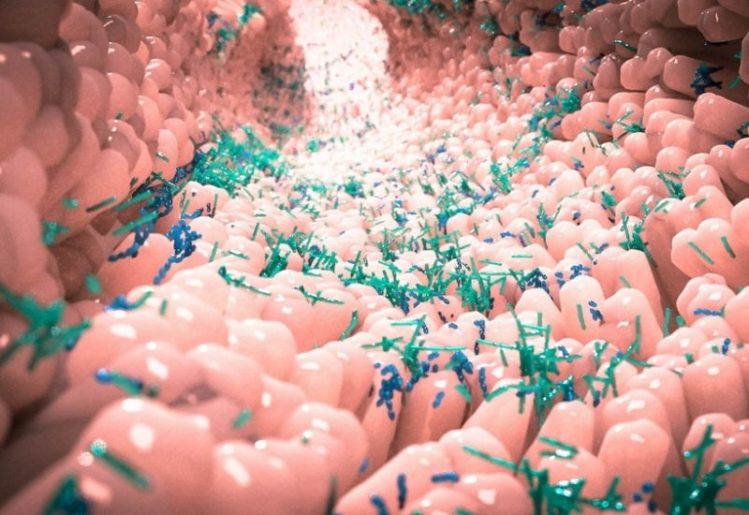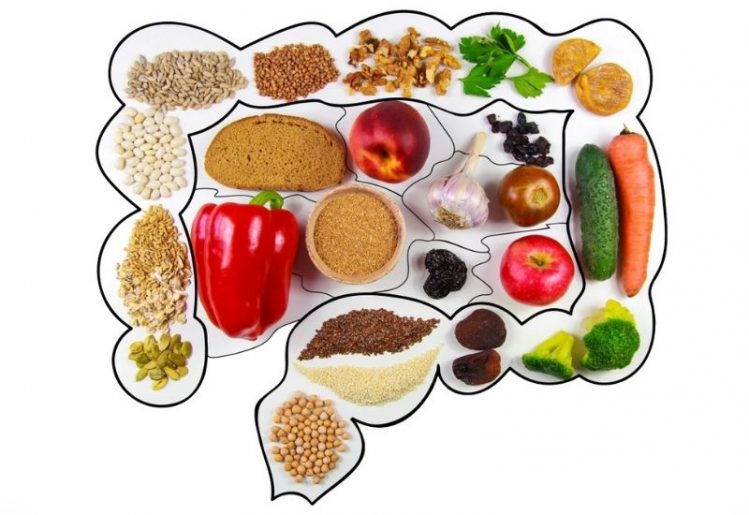How Your Diet Can Lead to Inflammation and Disease
It probably does not come as a surprise to learn that what you eat greatly influences your overall health. But did you know that a poor diet can lead to inflammation?
One of the leading predictors of an unhealthy level of inflammation in the body is an imbalance in the gut microbiome. This imbalance can lead to a variety of serious health conditions that are the result of too much inflammation. Understanding what foods to eat and what foods to avoid can help to influence your gut microbiome in positive ways, staving off harmful inflammation and boosting your overall health.
Importance of a Healthy Gut Microbiome
 Your microbiome is made up of a multitude of bacteria, viruses and fungi that reside inside the digestive tract and on the skin. The majority of these microbes are located within the large intestine inside the cecum pocket. It is this pocket of microbes that are known as the gut microbiome.
Your microbiome is made up of a multitude of bacteria, viruses and fungi that reside inside the digestive tract and on the skin. The majority of these microbes are located within the large intestine inside the cecum pocket. It is this pocket of microbes that are known as the gut microbiome.
While there are many types of microbes that contribute to your bodily functions, the bacterial microbes are the ones that are most studied and understood. A healthy gut microbiome is instrumental in supporting immune function, brain health and a healthy digestive system.
How a Poor Diet Can Lead to Inflammation
Inflammation is a natural response to bodily injury or infection. On its own, inflammation is not always a bad thing. However, too much inflammation may lead to cell damage and unhealthy organs and tissue. If the inflammation remains widespread for a long period of time, it can lead to fatigue, chest and abdominal pain, low-grade fever and more. Over time, these issues can then contribute to the development of more serious chronic conditions, including heart disease, type 2 diabetes, asthma, cancer and Alzheimer's disease.
Although a number of factors can increase the levels of inflammation in the body, a poor diet is a significant contributor to this issue. On the surface, taking in too many calories will naturally lead to weight gain. Excess fat has a strong correlation with an increase in body inflammation.
A recent study examined the dietary patterns of over 1,400 individuals while comparing these diets with any inflammatory conditions within the population. The study participants were asked to submit stool samples each day for analysis, and to fill out a questionnaire detailing their daily food intake.
Through the collected data, the researchers were able to link intake of certain food types to higher levels of inflammation. By clustering foods together in similar groups, it was easier to identify what types of food lead to higher levels of inflammation and what types of food actually work to reduce inflammation.
For example, the researchers found that a food cluster containing legumes, fish and nuts worked to lower the levels of harmful bacteria on a consistent basis. Conversely, a diet that was high in the food group cluster containing mayonnaise, soft drinks, meat and french fries was more likely to increase levels of the harmful bacteria that lead to inflammation.
Worst Foods for Inflammation
When looking to fight inflammation, it is important to remember that the two worst types of foods are animal products and items that are high in sugar. Be sure to look for sugar that hides in refined foods. For example, while it is common sense to avoid candy if wanting to limit sugar, many people may not know that high amounts of sugar could be lurking in bread, yogurt and other food products that you may consider to be healthy.
The animal products most likely to contribute to rising levels of inflammation include red meat, processed meats and sausages, hot dogs and full-fat dairy products. Trans fats such as margarine and shortening should also be avoided. A diet that is too high in alcohol can also have a detrimental effect on your body's ability to keep inflammation at healthy levels.
Best Foods to Fight Inflammation
 Eating a wide variety of foods will help to support a diverse microbiome. A diverse range of microbiome inhabitants naturally leads to a healthier gut system and a better chance of being able to fight off chronic inflammation.
Eating a wide variety of foods will help to support a diverse microbiome. A diverse range of microbiome inhabitants naturally leads to a healthier gut system and a better chance of being able to fight off chronic inflammation.
One easy way to ensure that you are eating the right foods to fight inflammation is to focus on eating a rainbow of colors every time that you fill your plate. The more colorful your diet is, the higher the chance that you are getting the nutrients that you need to combat the effects of inflammation.
The best diet to beat inflammation includes one that is full of fresh vegetables, fruit, nuts, legumes and fish. Focusing your dietary efforts on a plant-based diet will yield the most optimal results.
You can do your part to support a healthy gut microbiome that limits inflammation by changing your diet. Keeping inflammation in check is one of the best things that you can do for both your short-term and long-term health.





